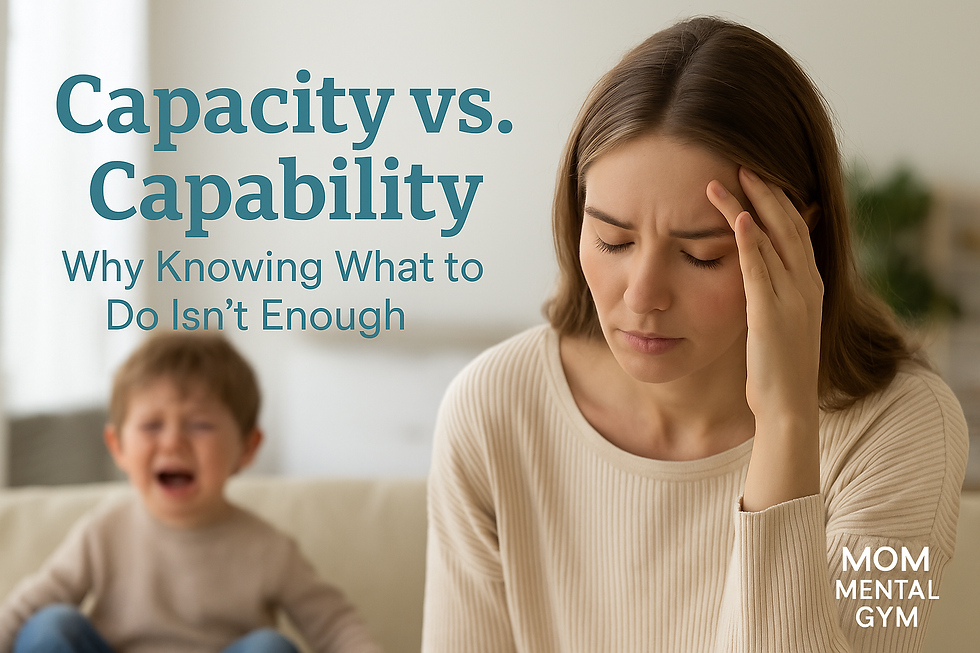Understanding Emotion Coaching: Helping Your Child Handle Feelings Better
- Oct 19, 2023
- 3 min read
Updated: Oct 25, 2023
Are you having a hard time keeping it together when your children have big emotions? Sometimes, as parents, we don’t know how to act when our children are struggling. We want to make it better, but sometimes we end up making it worse. In his book "Raising an Emotionally Intelligent Child," John M. Gottman talks about "emotion coaching," a way for parents to guide their children through their emotions. Let's see how this can help your child manage their feelings and become emotionally resilient.

Recognizing and Understanding Feelings: Getting Closer to Your Child
Imagine your child is upset during breakfast. When you recognize this and say, "I can see that you're really upset. Is there anything else you're feeling?" This makes them feel safe to share their feelings with you, strengthening your relationship. Acknowledging your child's feelings builds a strong emotional bond, fosters trust and openness, and strengthens your connection with your child.
Empathy and Understanding: Building Emotional Resilience
Empathy means understanding and sharing another person's feelings. When you say, "I understand you're upset. I'm sorry your friend took your toy," you're helping your child be kind and understanding towards others. It's like walking in their shoes for a moment and showing that you care. This practice instills a profound understanding of the importance of acknowledging and respecting the emotions of others, fostering emotional resilience and compassion within your child.
Using Words to Talk About Feelings
Teaching your child to talk about their feelings helps them understand themselves better. When your child says they're angry, you can help them understand why and how to handle it. It's like giving them a vocabulary for their emotions, making it easier for them to express themselves.
Accepting All Feelings, But Not All Reactions
One of the fundamental principles of emotion coaching is the acceptance of all emotions. When your child is upset, you can say, "It's completely okay to feel mad and frustrated, but it's not okay to throw your cereal bowl on the floor.” You can teach them that it's okay to feel angry but not to hurt themselves or others. By teaching the difference between experiencing emotions and expressing them in a healthy manner, you can instill values of self-control and responsible emotional expression, laying the foundation of emotional regulation and maturity.
Practical Strategies for Emotional Regulation: A Roadmap for Coping
Once your child processes his emotions and is in a regulated state, you can provide the child with tangible strategies for managing intense emotions. By suggesting that the child pay attention to the physical vibrations of frustration, such as changes in body temperature or sensations in the chest and face, the mother equips the child with practical tools for recognizing and controlling their emotions. For example, you can tell them that when they feel angry, their heart might beat faster, or their hands might feel tight. This can help them recognize when they're getting upset and find ways to calm down by processing their feelings in their bodies instead of reacting to it. This approach not only encourages mindfulness but also empowers the child to develop effective coping mechanisms for handling emotional challenges in the future.
Open Communication & Emotional Expression
Creating a safe space where children feel comfortable sharing their feelings without fear of judgment fosters a sense of emotional security and trust. Through consistent engagement and active listening, parents can strengthen their emotional connection with their children, cultivating a deep sense of understanding and empathy within the family. You can create a space where they know it's okay to talk about anything, whether it's happiness, sadness, or anger.

Challenges You Might Face
It's essential to acknowledge that the practice of emotion coaching is not without its challenges.
Helping your child with their feelings isn't always easy. Sometimes, it can be hard to understand what they're going through. You might find it difficult to stay calm, but by remaining patient, empathetic, and responsive, parents can help their children develop the necessary emotional skills to navigate life's ups and downs with confidence and resilience.
Conclusion: Helping Your Child Grow Emotionally
Emotion coaching is an ongoing process that needs patience and care. By using these tips in your daily life, you're helping your child become better at handling their feelings. The goal is to help them build strong relationships, make good choices, and lead happy lives. So, by understanding, validating, and guiding your child through their emotions, you're helping them become more emotionally resilient and self-aware.
Sources: Gottman, J. M., Declaire, J., & Goleman, D. (2015). Raising an emotionally intelligent child. Simon & Schuster Paperbacks.



Comments